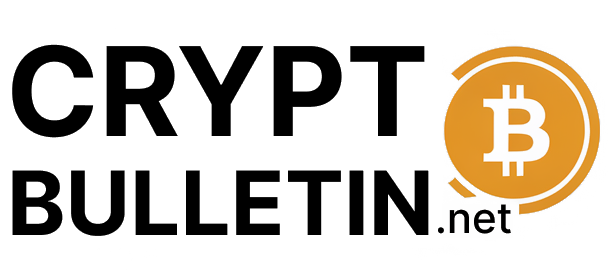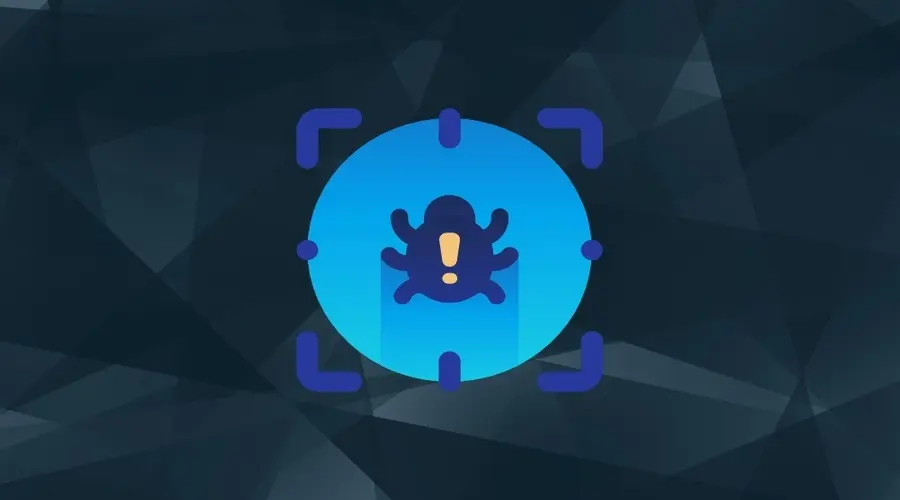Blockchain technology has gained significant attention due to its potential to revolutionize various industries. However, with innovation comes the need for robust security measures to protect the integrity of these decentralized systems. This is where bug bounty programs come into play. In this article, we will explore the impact of bug bounty programs on the reputation of blockchain projects, highlighting their importance in enhancing security, building credibility, and attracting stakeholders.
Introduction
In recent years, blockchain technology has gained significant traction across various industries, promising enhanced security, transparency, and efficiency. However, like any other technology, blockchain is not immune to vulnerabilities and potential security risks. To mitigate these risks and bolster the reputation of blockchain projects, bug bounty programs have emerged as an effective means of identifying and resolving vulnerabilities. In this blog post, we will explore the impact of bug bounty programs on the reputation of blockchain projects and how they contribute to the overall security of the blockchain ecosystem.
Understanding Bug Bounty Programs
Explain what bug bounty programs entail, providing a comprehensive overview of their structure and purpose. Describe how they incentivize security researchers and ethical hackers to discover vulnerabilities in exchange for rewards. Highlight the collaborative nature of bug bounty programs and their connection to the open-source community.
Bug bounty programs have become an integral part of the cybersecurity landscape, offering a proactive approach to identifying and mitigating vulnerabilities in software systems. These programs provide incentives to security researchers and ethical hackers to uncover and report bugs, allowing organizations to address them before they can be exploited by malicious actors. The concept is simple yet powerful: companies and projects set up a framework where individuals can responsibly disclose security flaws they discover in exchange for monetary rewards or recognition.
Bug bounty programs are particularly relevant in the context of blockchain projects, where security and trust are paramount. Given the decentralized nature of blockchain technology, ensuring the integrity and robustness of the underlying systems is crucial. By engaging the collective expertise of a diverse community of security researchers, bug bounty programs help identify vulnerabilities that might have otherwise gone unnoticed.
This allows blockchain projects to fortify their security defenses, patch vulnerabilities, and enhance the overall reliability of their platforms. Moreover, bug bounty programs foster collaboration and knowledge sharing between security professionals and project teams, creating a symbiotic relationship that benefits both parties. Ultimately, bug bounty programs contribute to a safer and more secure digital landscape, bolstering the reputation of blockchain projects and instilling confidence in users and investors alike.
The Importance of Bug Bounty Programs for Blockchain Projects
Emphasize why bug bounty programs are crucial for the success and long-term viability of blockchain projects. Discuss the unique security challenges faced by blockchain systems and how bug bounty programs help mitigate risks.
Enhancing Security and Mitigating Risks
- Understanding Bug Bounty Programs: Bug bounty programs are initiatives launched by organizations to encourage security researchers, commonly referred to as bug bounty hunters, to identify and report security vulnerabilities in their software or systems. These programs incentivize ethical hacking, allowing experts to proactively identify weaknesses before malicious actors exploit them. The programs often offer financial rewards, recognition, or other incentives to motivate researchers to participate actively.
- Building Trust and Credibility: One of the primary advantages of bug bounty programs for blockchain projects is the establishment of trust and credibility. By openly inviting security researchers to uncover vulnerabilities, projects demonstrate their commitment to security and their willingness to address potential issues promptly. This transparency helps to build trust with users, investors, and other stakeholders, ultimately enhancing the project’s reputation.
- Early Detection of Vulnerabilities: Bug bounty programs enable blockchain projects to benefit from the collective intelligence of a diverse pool of security researchers. These experts bring a wide range of skills and perspectives, which often leads to the early detection of vulnerabilities that might otherwise go unnoticed. By identifying and addressing these vulnerabilities before they are exploited, blockchain projects can prevent potential security breaches and subsequent damage to their reputation.
- Timely Response and Rapid Fixes: Bug bounty programs also facilitate a rapid response to identified vulnerabilities. Since the programs encourage ongoing engagement with security researchers, projects can receive timely reports on potential vulnerabilities, allowing them to take immediate action. The ability to swiftly address these issues demonstrates the project’s commitment to security, thereby strengthening its reputation.
- Community Collaboration and Feedback: Bug bounty programs foster collaboration between blockchain projects and the wider security community. By actively engaging with security researchers, projects gain valuable insights and feedback from experts in the field. This collaborative approach enhances the overall security of the blockchain ecosystem and helps projects identify and rectify vulnerabilities more effectively.
- Enhancing Public Perception: When blockchain projects actively engage in bug bounty programs and address reported vulnerabilities promptly, they signal a proactive and security-conscious approach to their users and the public. This not only enhances the perception of the project’s security measures but also differentiates them from competitors who may not prioritize such programs. Positive public perception strengthens the project’s reputation and can attract more users and investors.
- Limitations and Challenges: While bug bounty programs offer numerous benefits, they are not without limitations and challenges. Projects must ensure that the programs are well-structured and adequately funded to attract skilled security researchers. Additionally, the management and coordination of reported vulnerabilities require dedicated resources to address them promptly. Failure to address reported vulnerabilities in a timely manner can damage a project’s reputation instead of enhancing it.

Real-Life Examples of Bug Bounty Success Stories
Bug bounty programs have proven to be highly effective in uncovering critical vulnerabilities and strengthening the security of various projects. Several real-life examples highlight the success of these programs. One such example is the bug bounty program implemented by Coinbase, one of the largest cryptocurrency exchanges. Their program has attracted skilled researchers who have identified and responsibly disclosed numerous vulnerabilities, helping Coinbase enhance its security infrastructure. Another notable success story is that of the “Hack the Pentagon” initiative. In an unprecedented move, the U.S.
Department of Defense launched a bug bounty program, inviting ethical hackers to find vulnerabilities in their systems. The program was a tremendous success, with over 1,400 security flaws reported and promptly addressed, demonstrating the power of crowdsourced security testing. Additionally, the popular messaging platform, WhatsApp, initiated a bug bounty program in 2019. This program incentivized researchers to identify vulnerabilities in the platform’s encryption technology, leading to the discovery and subsequent patching of critical security weaknesses.
These success stories highlight the tangible impact of bug bounty programs in identifying and resolving vulnerabilities before they can be exploited by malicious actors. By leveraging the collective expertise of security researchers, organizations can significantly improve their security posture and build trust with their users. These examples serve as inspiration for other companies and projects considering the implementation of bug bounty programs as part of their comprehensive security strategy.
Challenges and Considerations
Bug bounty programs undoubtedly offer numerous benefits to blockchain projects, but they are not without their challenges. One of the primary challenges is ensuring that the programs are well-structured and adequately funded to attract skilled security researchers. Blockchain projects must offer attractive rewards and incentives that align with the level of expertise required to uncover vulnerabilities. Insufficient funding or low rewards may deter skilled researchers from participating, limiting the program’s effectiveness.
Another challenge lies in the management and coordination of reported vulnerabilities. Bug bounty programs often generate a significant number of vulnerability reports, which need to be reviewed, verified, and addressed promptly. Projects must have dedicated resources and processes in place to efficiently handle these reports. Failure to do so can lead to delays in addressing vulnerabilities, undermining the effectiveness of the program and potentially damaging the project’s reputation.
Additionally, bug bounty programs require effective communication and collaboration between the project team and the security researchers. Clear guidelines, well-defined scope, and prompt feedback are crucial for a successful bug bounty program. Lack of communication or delays in providing feedback can frustrate researchers and discourage their continued engagement. It is essential for blockchain projects to establish robust channels of communication and ensure that researchers feel valued and supported throughout the process.
Overcoming these challenges requires a commitment from the blockchain projects to allocate sufficient resources, establish effective processes, and maintain open lines of communication with the security researcher community. By addressing these challenges, projects can maximize the benefits of bug bounty programs and further enhance their reputation for security and proactive vulnerability management.
Best Practices for Implementing Bug Bounty Programs
Implementing bug bounty programs requires careful planning and execution to maximize their effectiveness. Here are some best practices to consider. First and foremost, clearly define the objectives of your bug bounty program. Set specific goals aligned with your project’s security needs and desired outcomes. Next, establish a well-defined scope and rules of engagement. Clearly communicate the areas of your project that are in scope for vulnerability hunting and establish guidelines for researchers to follow.
Engaging with the security community is crucial. Foster open communication channels, participate in relevant forums and conferences, and build relationships with researchers. Providing timely and transparent communication is also vital. Acknowledge and respond to bug reports promptly, provide updates on progress, and publicly acknowledge researchers for their contributions.
Furthermore, ensure that your bug bounty program offers fair and competitive rewards. Striking the right balance between budget constraints and incentivizing researchers is key to attracting skilled professionals. Finally, regularly evaluate and evolve your bug bounty program. Continuously assess its effectiveness, make necessary adjustments, and learn from each iteration. By following these best practices, you can create a successful bug bounty program that strengthens your project’s security, fosters collaboration, and enhances its reputation within the cybersecurity community.
Conclusion
Summarize the key points discussed in the article, highlighting the positive impact of bug bounty programs on the reputation of blockchain projects. Reinforce the importance of proactive security measures and ethical collaboration to ensure the long-term success of blockchain systems.
Frequently Asked Questions (FAQs)
Q1: What is a bug bounty program? A1: A bug bounty program is an initiative launched by organizations to encourage security researchers to identify and report security vulnerabilities in their software or systems. It offers rewards, recognition, or other incentives to researchers who uncover and report these vulnerabilities.
Q2: How do bug bounty programs impact the reputation of blockchain projects? A2: Bug bounty programs enhance the reputation of blockchain projects by demonstrating their commitment to security. They build trust with users and stakeholders, promote early detection and resolution of vulnerabilities, and foster collaboration with the security community, ultimately enhancing public perception.
Q3: What are the benefits of bug bounty programs for blockchain projects? A3: Bug bounty programs offer several benefits. They help identify vulnerabilities early, enabling swift fixes and preventing potential security breaches. They leverage the collective expertise of security researchers, foster community collaboration, and enhance the overall security of the blockchain ecosystem.
Q4: What are the challenges of implementing bug bounty programs? A4: Challenges of bug bounty programs include attracting skilled researchers with adequate funding and rewards, managing and coordinating a large number of vulnerability reports, and maintaining effective communication and feedback loops between the project team and researchers.
Q5: How can blockchain projects overcome these challenges? A5: To overcome challenges, blockchain projects should allocate sufficient resources and offer attractive rewards. They should establish efficient processes for reviewing and addressing reported vulnerabilities promptly. Effective communication channels and timely feedback are crucial to keep researchers engaged and ensure the success of bug bounty programs.


